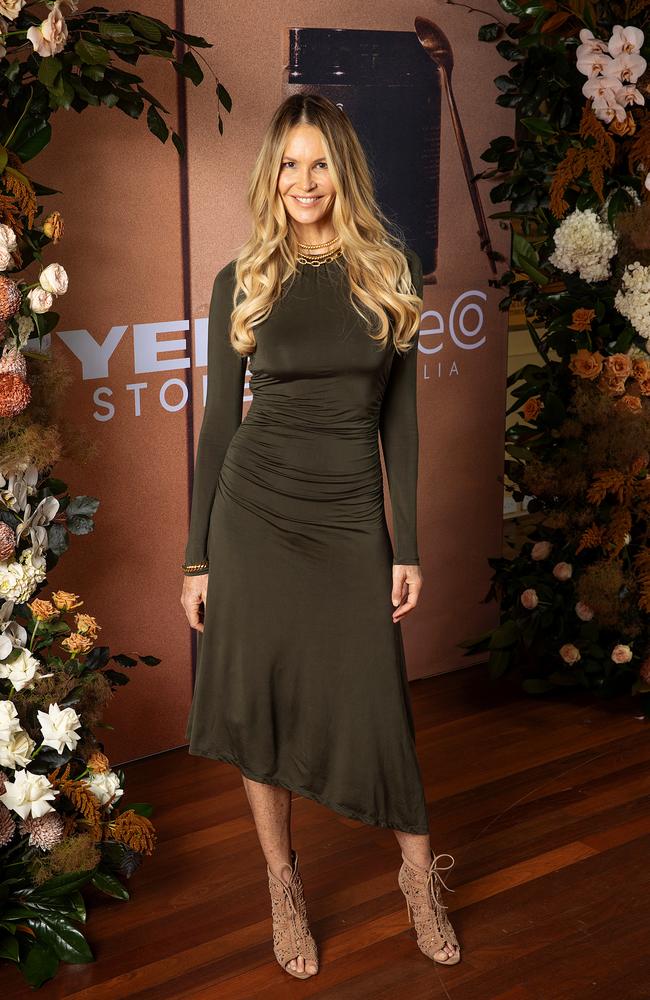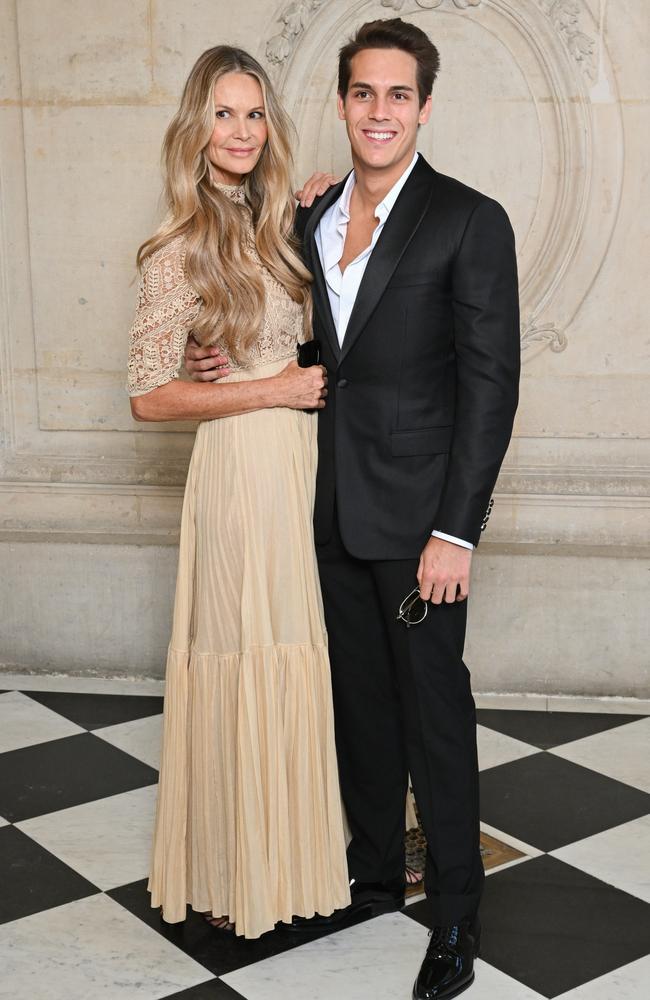Elle Macpherson slammed for ‘holistic’ cancer approach
Australian model Elle Macpherson has revealed how she was diagnosed with breast cancer seven years ago — but refused to treat it with traditional medicine.
Real Life
Don't miss out on the headlines from Real Life. Followed categories will be added to My News.
Cancer experts have expressed concern after Australian model Elle Macpherson refused to treat her breast cancer with traditional medicine.
The 60-year-old spoke with Australian Women’s Weekly ahead of the launch of her memoir Elle, where she opened up about the diagnosis for the first time.
Macpherson said a lumpectomy had revealed she had HER2-positive oestrogen receptive intraductal carcinoma, with her doctor recommending a mastectomy along with radiation, a breast reconstruction, hormone therapy and chemotherapy.
The diagnosis left her shocked, but she said she wanted to “find a solution that worked for her”.
“I realised I was going to need my own truth, my belief system to support me through it. And that’s what I did. So, it was a wonderful exercise in being true to myself, trusting myself and trusting the nature of my body and the course of action that I had chosen,” she told the publication.

Macpherson shared that despite advice from 32 medical professionals, she “prayed and meditated” and decided not to opt for chemotherapy.
Instead, she went down the path of “holistic approach” and specifically integrative medicine, which combines therapies and lifestyle changes.
During this time, she said she was treated by her primary doctor, a holistic dentist, osteopath, two therapists, a doctor of naturopathy and a chiropractor.
She said saying no to traditional medicine was “the hardest thing” she has ever done but that saying no to her belief system would have been harder.
At the time, she was dating anti-vaxxer Andrew Wakefield who was struck off the medical register in the UK in 2010.
Macpherson did acknowledge people thought her choice was “crazy” and even her son Arpad “Flynn” Alexander Busson didn’t support her choice.
Director of Cancer Control Policy of Cancer Council Australia director of cancer control policy Megan Varlow told news.com.au what Australians should consider regarding their treatment.
“There are many treatments available that are evidence-based and scientifically proven to be safe and effective,” she said.

“They are designed to diagnose and treat cancer, slow its growth, or provide relief from symptoms. Cancer actually refers to about 100 different diseases, so unfortunately, there’s no ‘magic bullet’ or ‘one size fits all’ approach to treating cancer, although the community often asks us about the latest ‘miracle cancer cure’.”
Ms Varlow said that the Cancer Council encourages Australians to look at trusted sources like them to determine fact from fiction. She said when it comes to seeking treatment, it’s important to ask questions such as “does it sound too good to be true?” and to “dismiss evidence-based approaches or treatments that we know are safe and effective”.
Other questions were whether information was from a reliable source, whether it was promoting or selling something, and whether it was peer reviewed by experts with qualifications specifically related to cancer.
“One of the reasons people might try new things to ‘cure’ cancer is because it helps them take an active role in their health and wellbeing during a difficult time. The challenge is that we don’t always know what the side effects might be,” Ms Varlow said.
“At best, some things that people try won’t effectively treat cancer but won’t cause harm. However, cancer misinformation can also stop people from using treatments recommended by their healthcare team that we know are safe and effective at treating cancer. At worst, they can be dangerous, cause side effects or interact with conventional treatments.

“That’s why we encourage Australians to look to trusted sources of information to make informed and safe choices about your health, and if you have cancer, speak to your doctor about any treatments, medicines or supplements before you make a decision. We do not recommend that people delay or replace evidence-based medical care with alternative therapies. If you notice symptoms or side effects of something you’ve tried, always talk to your doctor.”
Macpherson’s approach to treatment has been met with criticism on social media, particularly firing up users on X, formerly known as Twitter.
Cancer researcher Dr David Robert Grimes said: “Incredibly irresponsible from Elle Macpherson: Holistic therapy is NOT (a) valid treatment for breast cancer.”
Meanwhile, Dr Liz O’Riordan said: “We have proof that ... who choose not to have mainstream cancer treatments for breast cancer are 6x (sic) more likely to die thanks to @sky__john and co.
“I’d urge women not to assume that because it’s worked for her so far, it will work for you.”
Others said her comment regarding seeing 32 health professionals and ignoring their advice infuriated them.
Macpherson told the magazine she is in remission.
Originally published as Elle Macpherson slammed for ‘holistic’ cancer approach





